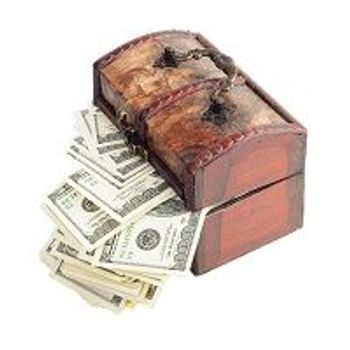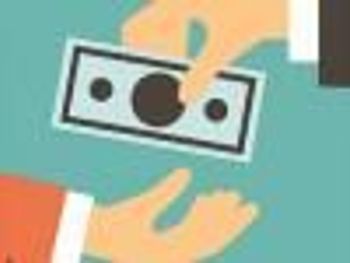Articles by Jeff Brown, MD

The end of the year has a number of significant financial implications that we should not lose sight of in our merriment. And being aware of some of them will allow us to feel better and maybe save some money, even if we are sometimes profligate in our holiday shopping.

The question of luck versus skill-LVS for short-permeates much of how we view many of our activities. We see luck as random, largely unknowable, and unpredictable-except by probability theory, which is by itself arcane enough to be of no use to most.

Much of what all financial writing is about, and certainly this column, is the on-going effort to make simple sense of the vast and messy world of money affairs.

Only if you know where to shop, goes the old punch line. But a recent Wall Street Journal article cites new research on the long-argued subject that is worth riffing upon.

With the market at an all-time high, even the foot-draggers still reeling from the 2008-2009 meltdown are taking a second look. No one likes to feel left out when others are making a lot of money, even on paper.

Several times a year my crack staff pulls together a mélange of the best and most useful bits of wisdom that we have come across. We put these together for your amusement, enlightenment, and hopefully, profit.

The term "venture capitalist" has been bannered across all media for years now, but most folks outside that cloistered sub-culture here in Silicon Valley know little about it.

If you somehow managed to avoid the 5 worst trading days each year, you could have earned a staggeringly high return on your investments. Here are a list of other surprising figures that could have a significant impact on your wallet.

A strong brand is the Holy Grail for marketers, and should be for physicians. A brand is a promise that the product or service will be consistent and reliable every time. And it differentiates the product or service from competitors. It is a means to more sales and to a premium price so everyone in search of revenue places a strong brand identity as Job 1.

Every day we're fighting entropy, the tendency in the universe for things to fly into chaos. This includes financial disorganization, as well. Part of getting your finances in order is preparing for the inevitable -- maintenance costs.

I always ask myself this when I return from a trip. So I decided to take the process apart and share it with you. I don't know if any of us will actually learn from this exercise and spend more wisely, but we should have a better understanding of why we feel so sheepish when we do overdo it.

There is a major reason why hospitals are so eager to acquire practices in competitive markets; each physician in a full-time practice generates between $1 million and $3 million in consequent hospital activity.

Business cards are often an afterthought for physicians, but they are still an important and potentially powerful tool for both your patients and your career.

Although physicians have learned the value of proper workplace procedures and insurance coverage in their medical practices, few are likely to be as professional with household help such as nannies, maids, and gardeners.

Now that more than 50% of physicians are employees, we need to know more about managing our careers than just doing our best for our patients.

Because of the obscure nature of the credit score, there is a confusion surround it that can cost consumers a lot of money. Make sure you know and implement the best ways to raise your score.

Some of the greatest minds in investing recommend buying cheap and keeping an eye on costs and fees that can eat away at a profit.

Half of American couples argue regularly about money, and they can often get deep into their lives together before the difference surface.

Too many folks do not see the humorous side of their money affairs, or their medical affairs.

Knowing the mistakes you are making that cost you money is useless unless you take action to avoid making the same slip-ups again.

All the signs point to a rising economy for physicians. Enjoy it while it lasts and take this time to structure your finances with your advisors to prepare for other, less desirable economic climates to come.

According to reports from various organizations, America is wasting roughly $765 billion annually on healthcare and doctors should take some of the blame, according to Jeff Brown, MD.

While people earning more than $80,000 a year make up 75% of all individual charitable donation, only 35% do any research about their giving.

Uncertainty has been at the heart of all past financial crises, and almost every government's strategy for coping with them only made the situation worse. That's how the stress test was born in the last crisis.

Although the S&P 500 returned 11.1% annually over the last 30 years, the average investor only earned an average 3.7% annually. Why do we keep underperforming?

The average physician and his or her spouse are assailed almost daily with appeals to give money to a myriad of seemingly worthy charitable causes.

Physicians are not trained to be financially literate, and most experience a lifetime of expensive mistakes to become functional, if not efficient, at their financial affairs.

Sociologists and late night comedians have made a good living on exploring how ignorant Americans are on any number of subjects. And our lack of knowledge regarding health insurance is alarming.

Judicious use of the right words can increase a home's selling price by 9%. Plus, before the Affordable Care Act went into effect, Americans had spent 28% more in healthcare costs compared to 3 years prior.

As every physician knows, these times are not only seeing an unprecedented avalanche of new medical science, but also experiencing a storm of pressure to change the way that healthcare is organized and financed.










